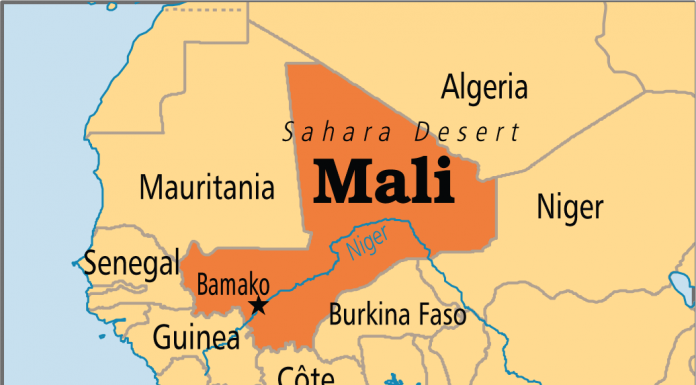Dozens of civilians were killed this week in a northern Malian town attacked by jihadists affiliated with the Islamic State group, a local elected official and the leader of an armed group told AFP Friday.
It was the first time the town of Talataye, about 150 kilometres (90 miles) from the city of Gao, has been attacked on such a scale by the Islamic State in the Greater Sahara (ISGS).
On Tuesday, the jihadists fought a fierce battle with rivals from the Al-Qaeda-affiliated Support Group for Islam and Muslims (GSIM) and other armed groups, including the Tuareg-dominated Movement for the Salvation of Azawad (MSA), various people familiar with the events told AFP.
The ISGS fighters, who emerged from the bush on motorbikes, took control of the town Tuesday evening after more than three hours of bitter fighting, AFP learned earlier this week.
The situation on the ground remains unclear, as information is difficult to come by in the dangerous and remote Sahel area, largely cut off from communication networks.
The death toll also varies according to different accounts.
A local official said that 45 civilians had been killed, while an MSA leader put the civilian death toll at 30. Both spoke to AFP on condition of anonymity and added that houses and the market had been torched.
An international humanitarian worker in the region said “several dozen” civilians had been killed.
It is unclear whether the civilians were deliberately killed or caught in crossfire.
Both the local politician and the MSA leader said there had been at least a partial withdrawal of ISGS fighters since Tuesday.
MSA fighters entered the town on Thursday, the group said. It says it now controls one part of the area while the GSIM controls another part.
MSA fighters have “gathered information and bodies”, he added.
“What really worries us is the humanitarian situation — the people are left to fend for themselves,” the local politician said.
A women’s association from the area, but based in Gao, launched an “urgent appeal” on Friday to “come to the aid of the battered population”.
Caught in the crossfire
Talataye, an agglomeration of hamlets, lies at the heart of competing areas of influence, and clashes are frequent. It had some 13,000 inhabitants in 2009, the date of the last census in Mali.
The area is mainly inhabited by Tuareg Dahoussahak nomads, with few urban centres and a sparse population.
The GSIM is said to be very influential there.
Other armed groups consisting mainly of MSA fighters that signed a 2015 peace accord are also based there.
The regions of Gao and Menaka, to its east, have for months suffered infighting among jihadist groups as well as violence between jihadists and other armed groups.
The state has a very weak presence and civilians, mainly nomads living in camps scattered across the desert, are frequently caught in the crossfire.
Jihadists attack the civilians, often on suspicion of siding with the enemy.
Hundreds of civilians have died and tens of thousands have been displaced.
The Malian government on Tuesday said it had carried out a “reconnaissance offensive” of Talataye from the air.
The army’s communications chief, Colonel Souleymane Dembele, told the Malian press Friday that the occupation of Talataye by ISGS jihadists was “fake news”.
ISGS, formed after a split with other jihadist groups in 2015, has flourished in recent years in the border area between Mali, Burkina Faso and Niger.
It recruits largely from historically marginalised nomadic communities, and is responsible for numerous civilian massacres, notably in Seytenga, Burkina Faso, where 86 civilians were killed in June.
One of the poorest countries in the world, landlocked Mali has been battling separatist and jihadist insurgencies since 2012.

